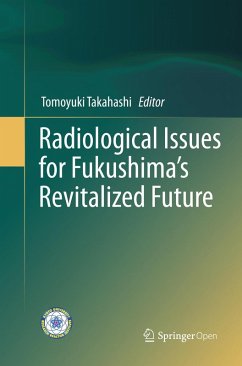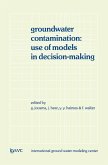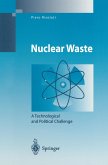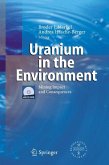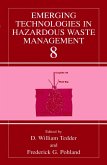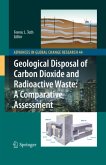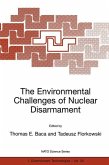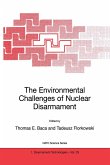This book overviews environmental issues 4 years after the Fukushima nuclear accident, covering a wide range of areas related to radiation and radioactivity. The topics discussed are necessary to make clear the relationship between the results of research and Fukushima's revitalized future. The chapters are divided into four parts: Part 1 presents the identification of radionuclides in soil and migration of radionuclides in the terrestrial environment; Part 2 describes the safety decontamination system and treatment of radioactive waste; Part 3 explains the development of the system of measurement of environmental radiation and evaluation of external exposure; and Part 4 discusses the identification of radionuclides in farm products, control of root uptake, identification of decreasing radionuclides by food processing, and evaluation of internal exposure.
Since the accident at the Tokyo Electric Power Company's Fukushima Daiichi nuclear power station in 2011, gradual steps havebeen taken toward environmental recovery in the area. However, there are still many issues that need to be tackled in order to achieve the full revitalization of Fukushima. These issues encompass many different disciplines such as economics, psychology, and sociology. In this kind of situation, the role of science in relation to radiation and radioactivity is especially important. This book aims to contribute to planning countermeasures against nuclear disasters in the future. It will be of particular interest to governmental officials who are engaged with the Fukushima nuclear accident; researchers, including those in international sectors, who are interested in radiological issues; and those who need comprehensive and reliable information about the Fukushima accident.
Since the accident at the Tokyo Electric Power Company's Fukushima Daiichi nuclear power station in 2011, gradual steps havebeen taken toward environmental recovery in the area. However, there are still many issues that need to be tackled in order to achieve the full revitalization of Fukushima. These issues encompass many different disciplines such as economics, psychology, and sociology. In this kind of situation, the role of science in relation to radiation and radioactivity is especially important. This book aims to contribute to planning countermeasures against nuclear disasters in the future. It will be of particular interest to governmental officials who are engaged with the Fukushima nuclear accident; researchers, including those in international sectors, who are interested in radiological issues; and those who need comprehensive and reliable information about the Fukushima accident.

